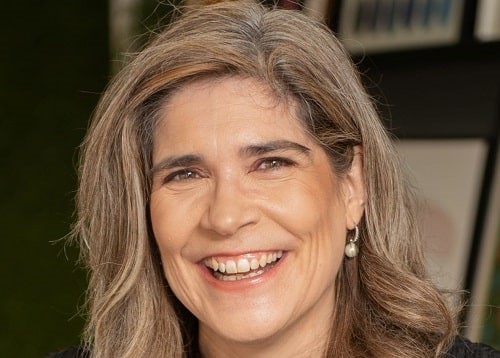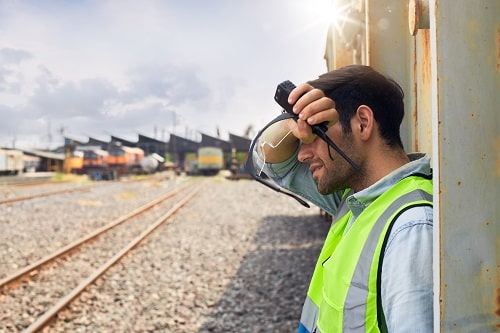Currently, approximately 21 per cent of health and safety professionals are women, which means the profession is not representative of the workplace. Translate this into leadership roles and we have even more work to do.
Opinion
We need more women in safety leadership roles – so let’s #EmbraceEquity
The OneWISH Coalition is a not-for-profit which includes membership bodies, supporting organisations and corporations. Its aim is to share views, network and progress work which creates greater visibility and opportunity to empower women and underrepresented groups within the health and safety sector. Traditionally, health and safety has been associated with the high hazard sector and heavy industry, which is why it has been male dominated for so long. This is changing as we develop a deeper understanding of how modern leadership skills combine with a greater focus on health and wellbeing.
Global sustainability consultancy ERM reported on the statistics in relation to women in health and safety leadership roles back in 2021 and shared details which are available to view on the playlist for OneWISH International Women’s Day 2021. They surveyed the largest global corporations and found the health and safety profession is shockingly behind the gender curve (15 per cent of leaders in health and safety were women compared with 29 per cent in senior business roles globally); in turn this means gender-related risk is not being given the priority it deserves. The theme for the recent 2023 International Women’s Day (IWD) was #EmbraceEquity. Equal opportunities are not good enough. We all have different approaches and true inclusion requires equitable actions.

Louise Hosking, director and co-founder of the OneWISH Coalition.
For IWD 2023, I was privileged to be involved in some excellent online discussions, and watched events hosted by others all focused on the #EmbraceEquity theme. OneWISH hosted several sessions during our global event, ‘Embrace Equity Through a Diverse and Inclusive Leadership’, which are available to view on the playlist for OneWISH IWD 2023. The OneWISH event team made a concerted effort to include speakers and moderators who have not previously been heard on a global stage, providing opportunities for new hosts in particular.
Authentic leadership
Authentic leadership approaches have been discussed for some time now. Many women and those with feminine traits can feel hesitant. Society remains somewhat biased in favour of traditional transactional or hero leadership styles. Gender bias is not gender-specific. This means people are not bringing their whole selves and best selves to work.
In the first OneWISH session, ‘You are not an imposter! Harnessing your inner superpowers’, Mohamed Hassan encouraged everyone to consider one another’s life journeys. He urged us to think about how others have arrived at where they are now. Many people have suffered trauma in their lives and relationships. At work this can trigger a response which they, and those around them, may not expect. The workplace is like a family, we may spend more time with colleagues than we do with some members of our own family. We are all seeking human connection and we all have different needs. By taking the time to listen, by respecting ethical standards, and by being open and vulnerable we create greater trust and higher standards of psychological health and safety. Everyone is on a different path; there is no right or wrong.
At an event hosted by IOSH Northeast Scotland, Debra-Jane Nelson urged everyone to “be selfish with your dreams”. Nana Ama Botchway reminded us of the crucial link organisations are making to include equity in their ESG (environmental, social, and corporate governance) reporting and how this brings tangible value to our organisations.
In embracing equity, we discussed how gender perceptions evolve from an early age and the importance of young girls having access to technology. In many cultures the perceptions and expectations for young girls to become wives and housekeepers remains. This bias from childhood and within relationships crosses into our workplaces.
Where access to the internet is limited, young girls in particular, fall behind. The UN celebrated the theme ‘DigitALL: Innovation and technology for gender equality’. They reported on a global analysis of 133 AI systems across industries which found that more than 44 per cent demonstrated gender bias. A survey of women journalists found that 73 per cent have suffered online violence in the course of their work. There remains a persistent gender gap in digital access and a growing, pervasive threat of online gender-based violence which remains poorly regulated. Used in the right way technology can open doors which was certainly demonstrated by the expansion of our virtual global networks – in part a result of the pandemic.
Gender equality is one of the UN’s life-enhancing sustainability development goals. It is seen as a fundamental human right and a foundation for a peaceful, prosperous and sustainable world.
Positive leadership traits
In the second OneWISH session, ‘Embracing equity to be future fit’, IOSH president Lawrence Webb reminded us we are in the midst of a global skills shortage. By embracing flexible working and family-friendly policies we will attract and retain the talent our workplaces need. Those with more feminine traits are more likely to be sensitive which is a positive leadership trait, but when faced with authoritarian leadership styles they are much more likely to leave. This means organisations miss opportunities and culture is negatively affected.
This panel also discussed the importance of strong networks. Rita Hauskin suggested we use our networks to the max and accept direct help and sponsorship from others. Women often feel uncomfortable in accepting such direct support. She urged the audience to use it fully and not to apologise for doing so.
In the final OneWISH session of the week, ‘Women in health and safety leadership’, high profile female safety and health leaders, all of whom are operating in significant global roles, shared their leadership experiences and journey.
Throughout the world men occupy 65–95 per cent of leadership roles yet:
- 65 per cent of employees would swap a pay increase for a replacement boss
- 75 per cent quit due to their boss
- Studies indicate that toxic leaders have a pervasive and negative influence on turnover, salary and productivity
- 84 per cent of workers report persistent stress
- Fewer than 20 per cent of boards feel confident of effectively addressing leadership issues.
Female participation at board level boosts performance
Business cases have continually shown female participation in boards boosts performance
once a minimum threshold has been achieved. Organisations with a higher proportion of women
in senior leadership roles perform better. Greater gender parity brings diversity to leadership approaches. This is not about women versus men it is about equity for all. Kathy Seabrook urged us to use our networks to join the dots and reminded us that when we raise up women, we raise up everyone and we raise the tide.
At the heart of any transformation are people, and by putting people first we will meet the very real challenges the world is facing. Adaptive, collaborative leadership styles which prioritise emotional engagement, empathy, innovationand creativity build sustainable organisations. We add value via collaborative approaches, actions and language.
When we embrace, and use, our differences we make better decisions and when we make better decisions in health and safety, we have the ability to save more lives and reduce cases of ill health.
We each have a unique blend of skills and strengths which have been shaped by our life experiences. Feminine traits of empathy, collaboration, compassion and high emotional intelligence create more satisfied workforces and more successful organisations.
#EmbraceEquity – start with just one conversation at a time.
Louise Hosking is Director and co-founder of the OneWISH Coalition
OneWISH’s mission is to empower and connect everyone working to improve the prominence and influence of women in the health and safety sector. See:
Further resources and information:
OneWISH International Women’s Day 2023 – Event overview
OneWISH YouTube – IWD 2023 Playlist
References
- 21 per cent of health and safety professionals are women
https://www.ioshmagazine.com/2021/09/01/did-you-know-results-2021-iosh-membership-survey-are
OPINION

Heat at work: a silent killer
By Halshka Graczyk and Lacye Groening, ILO on 07 April 2025
Workers across the world are increasingly being exposed to excessive heat with serious implications for their safety and health. It is therefore vital that governments, employers and workers’ organisations develop, share and implement practical and low-cost strategies and measures for effectively reducing the risk from heat stress at work.

Making good work the foundation
By Mike Robinson FCA, British Safety Council on 07 April 2025
In 2024, for the first time, the UK dropped out of the list of the top 20 happiest countries: according to the World Happiness Index. This year, the UK rests in 23rd place, slightly ahead of the US and behind the Nordic countries, Germany, the UAE and others.

The air we share: why tackling pollution protects us all
By Scott Paul, Mums for Lungs on 04 April 2025
Air pollution is often invisible; its impact is anything but. Whether you’re a parent worried about your child’s lungs, a construction worker breathing exhaust fumes, or a commuter passing through busy streets, polluted air is everyone’s problem.



